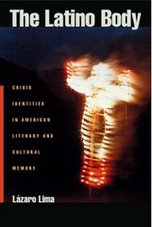
By STEVEN LEE MYERS and PHILIP SHENON
NYT
WACO, Tex., Aug. 27 — Attorney General Alberto R. Gonzales, whose tenure has been marred by controversy and accusations of perjury before Congress, announced his resignation in Washington today, declaring that he had “lived the American dream” by being able to lead the Justice Department.
Mr. Gonzales, who had rebuffed calls for his resignation for months, submitted it to President Bush by telephone on Friday, a senior administration official said. There had been rumblings over the weekend that Mr. Gonzales’s departure was imminent, although the White House sought to quell the rumors.
Mr. Gonzales appeared cheerful and composed when he announced that he was stepping down effective Sept. 17. His very worst days on the job were “better than my father’s best days,” he said, alluding to his family’s hardscrabble past.
“Thank you, and God bless America,” Mr. Gonzales said, exiting without responding to questions.
In Waco, President Bush said he had accepted the resignation reluctantly. He praised his old friend as “a man of integrity, decency and principle” and complained of the “months of unfair treatment” that preceded the resignation.
“It’s sad,” Mr. Bush said, asserting that Mr. Gonzales’s name had been “dragged through the mud for political reasons.”
The president said the solicitor general, Paul D. Clement, would serve as acting attorney general until a permanent replacement was chosen.
Mr. Bush has not yet chosen a replacement but will not leave the position open long, the senior administration official said early this morning. Among those being mentioned as a possible successor were Michael Chertoff, the secretary of homeland security who is a former federal prosecutor, assistant attorney general and federal judge; Christopher Cox, the head of the Securities and Exchange Commission; and Larry D. Thompson, a former deputy attorney general who is now senior vice president and general counsel of PepsiCo Inc.
Mr. Bush repeatedly stood by Mr. Gonzales, an old friend and colleague from Texas, even as Mr. Gonzales faced increasing scrutiny for his leadership of the Justice Department over issues including his role in the dismissals of nine United States attorneys late last year and whether he testified truthfully about the National Security Agency’s surveillance programs.
Earlier this month, at a news conference, Mr. Bush dismissed accusations that Mr. Gonzales had stonewalled or misled a Congressional inquiry. “We’re watching a political exercise,” Mr. Bush said. “I mean, this is a man who has testified, he’s sent thousands of papers up there. There’s no proof of wrong.”
But Democrats cheered Mr. Gonzales’s departure. “Alberto Gonzales was never the right man for this job,” said Senator Harry Reid of Nevada, the majority leader. “He lacked independence, he lacked judgment, and he lacked the spine to say ‘no’ to Karl Rove.”
Senator Charles E. Schumer, the New York Democrat who sits on the Judiciary Committee and has been calling for Mr. Gonzales’s resignation for months, said this morning: “It has been a long and difficult struggle, but at last the attorney general has done the right thing and stepped down. For the previous six months, the Justice Department has been virtually nonfunctional, and desperately needs new leadership.”
Senator Schumer said that “Democrats will not obstruct or impede a nominee who we are confident will put the rule of law above political considerations.”
Another Democrat on the Judiciary Committee who has been highly critical of Mr. Gonzales, Senator Russell D. Feingold of Wisconsin, said the next attorney general must be a person whose first loyalty is “to the law, not the president.”
But a Republican senator who has known Mr. Gonzales for years, Kay Bailey Hutchison of Texas, paid tribute to the Harvard-educated Mr. Gonzales, the first attorney general of Hispanic heritage. “He has served in difficult times and I believe is a good, honest man who has worked hard in public service all his life,” the senator said in a statement.
Mr. Gonzales’s resignation is the latest in a series of high-level departures that has reshaped the end of Mr. Bush’s second term. Mr. Rove, the political adviser who is another of Mr. Bush’s close circle of aides from Texas, stepped down two weeks ago.
The official who disclosed the resignation in advance today said that the turmoil over Mr. Gonzales had made it difficult for him to continue as attorney general. “The unfair treatment that he’s been on the receiving end of has been a distraction for the department,” the official said.
A senior administration official said today that Mr. Gonzales, who was in Washington, had called the president in Crawford, Tex., on Friday to offer his resignation. The president rebuffed the offer, but said the two should talk face to face on Sunday.
Mr. Gonzales and his wife flew to Texas, and over lunch on Sunday the president accepted the resignation with regret, the official said.
On Saturday night Mr. Gonzales was contacted by his press spokesman to ask how the department should respond to inquiries from reporters about rumors of his resignation, and he told the spokesman to deny the reports.
White House spokesmen also insisted on Sunday that they did not believe that Mr. Gonzales was planning to resign. Aides to senior members of the Senate Judiciary Committee said over the weekend that they had received no suggestion from the administration that Mr. Gonzales intended to resign.
As late as Sunday afternoon, Mr. Gonzales himself was denying through his spokesman that he was quitting. The spokesman, Brian Roehrkasse, said Sunday that he telephoned the attorney general about the reports of his imminent resignation “and he said it wasn’t true — so I don’t know what more I can say.”
Steven Lee Myers reported from Waco, Texas, and Philip Shenon reported from Washington.




